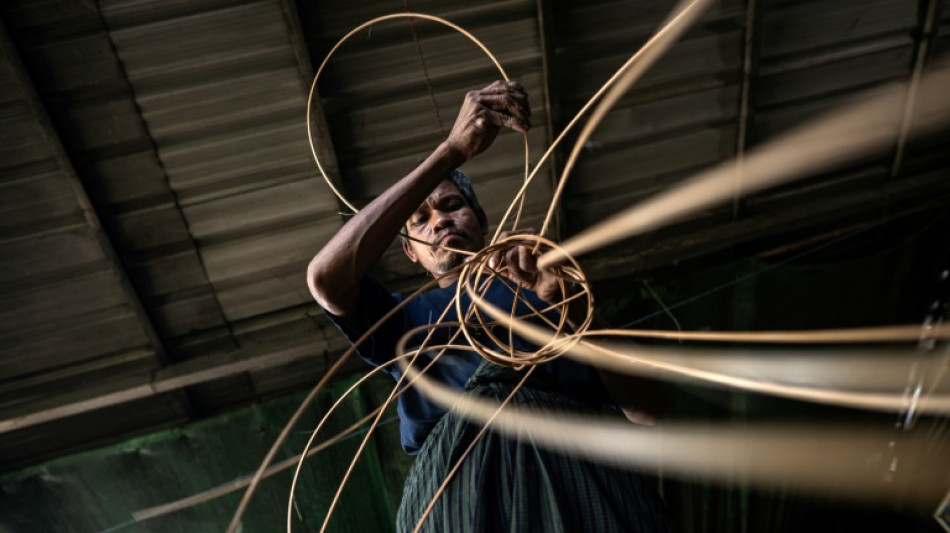
-
 Norway wealth fund divests from Caterpillar over Gaza 'rights violations'
Norway wealth fund divests from Caterpillar over Gaza 'rights violations'
-
Australia joins countries suspending post to US

-
 Trump moves to fire a Fed governor over mortgage fraud claims
Trump moves to fire a Fed governor over mortgage fraud claims
-
Women's Pro Baseball League completes four days of tryouts

-
 Battling Venus falls short on US Open return
Battling Venus falls short on US Open return
-
Putting the boot in: Colombian women farmers embrace football
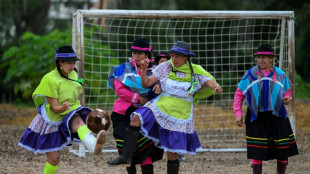
-
 Women's NBA could face lockout as union deal deadline looms
Women's NBA could face lockout as union deal deadline looms
-
Perplexity AI to share search revenue with publishers

-
 Diamond czar Maurice Tempelsman, Jackie O companion, dead at 95
Diamond czar Maurice Tempelsman, Jackie O companion, dead at 95
-
Athletic Bilbao and Getafe make it two from two in La Liga

-
 'Stay humble', Van Dijk tells Liverpool's teenage hero Ngumoha
'Stay humble', Van Dijk tells Liverpool's teenage hero Ngumoha
-
Liverpool rely on 16-year-old Ngumoha to overcome 10-man Newcastle fightback

-
 NFL Texans lose 1,000-yard rusher Mixon for four games
NFL Texans lose 1,000-yard rusher Mixon for four games
-
Liverpool rely on 16-year-old Ngumoha to survive 10-man Newcastle fightback

-
 Trump suggests many Americans 'like a dictator'
Trump suggests many Americans 'like a dictator'
-
Mexican drug lord faces life in prison after pleading guilty in US court

-
 Bolivia candidate vows to scrap China, Russia lithium deals
Bolivia candidate vows to scrap China, Russia lithium deals
-
Powerful Inter thrash Torino in Serie A opener

-
 Brazil without Neymar and Vinicius as Paqueta back for World Cup qualifiers
Brazil without Neymar and Vinicius as Paqueta back for World Cup qualifiers
-
Tennis history for Hong Kong as Wong reaches US Open 2nd rd
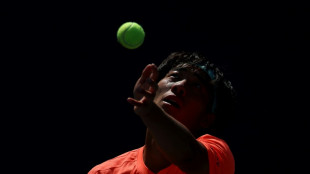
-
 Rapper Lil Nas X charged after naked nighttime stroll in LA
Rapper Lil Nas X charged after naked nighttime stroll in LA
-
US judge temporarily blocks deportation of Salvadoran man in immigration row

-
 US captain Bradley eyes picking himself to play in Ryder Cup
US captain Bradley eyes picking himself to play in Ryder Cup
-
Sixth seed Keys upset by Zarazua at US Open

-
 New school year in Washington marked by fear of anti-migrant raids
New school year in Washington marked by fear of anti-migrant raids
-
Trump says he wants to meet North Korea's Kim again

-
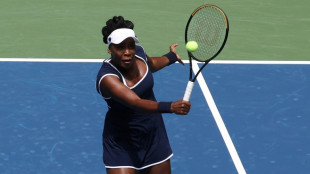 Alcaraz makes US Open bow, Venus Williams returns
Alcaraz makes US Open bow, Venus Williams returns
-
US backs ambassador to France in antisemitism row

-
 French PM's job on line with call for confidence vote
French PM's job on line with call for confidence vote
-
Polish president blocks law extending Ukrainian refugees' rights

-
 SpaceX megarocket prepares for next launch amid new scrutiny
SpaceX megarocket prepares for next launch amid new scrutiny
-
Trump eyes N.Korea meet as he ambushes S.Korea leader

-
 Medvedev 'needs help' after US Open meltdown: Becker
Medvedev 'needs help' after US Open meltdown: Becker
-
Shi hopes 'new image' will help break his badminton worlds hoodoo
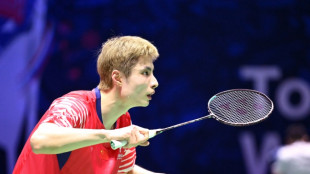
-
 Gaudu pulls away from Vingegaard to take Vuelta stage
Gaudu pulls away from Vingegaard to take Vuelta stage
-
Musk's xAI sues Apple, OpenAI alleging antitrust violations

-
 Top UK screenwriter Laverty arrested at pro-Palestine protest
Top UK screenwriter Laverty arrested at pro-Palestine protest
-
US studio unearths fossilized dinosaur game 'Turok'

-
 Trump advisor says US may take stakes in other firms after Intel
Trump advisor says US may take stakes in other firms after Intel
-
Russia holds secretive espionage hearing against French researcher

-
 Salvadoran man in Trump immigration row to be deported to Uganda: officials
Salvadoran man in Trump immigration row to be deported to Uganda: officials
-
Typhoon Kajiki lashes Vietnam, killing one as thousands evacuate

-
 Bologna new boy Immobile out for eight weeks with thigh injury
Bologna new boy Immobile out for eight weeks with thigh injury
-
Polish president blocks law to extend social welfare to Ukrainian refugees

-
 Five journalists among 20 killed in Israeli strikes on Gaza hospital
Five journalists among 20 killed in Israeli strikes on Gaza hospital
-
Salvadoran man at center of Trump immigration row detained again

-
 Five journalists among 20 killed in Israeli strikes on Gaza hospital: civil defence
Five journalists among 20 killed in Israeli strikes on Gaza hospital: civil defence
-
Telegram's Durov blasts French probe one year after arrest

-
 African players in Europe: Another historic goal for Ndiaye
African players in Europe: Another historic goal for Ndiaye
-
Amorim warns Mainoo he must fight for his Manchester United place


Ancient Myanmar ball game battles for survival in troubled nation
Mastering control of the rising and falling rattan chinlone ball teaches patience, says a veteran of the traditional Myanmar sport -- a quality dearly needed in the long-suffering nation.
"Once you get into playing the game you forget everything," says 74-year-old Win Tint.
"You concentrate only on your touch and you concentrate only on your style."
Chinlone is Myanmar's national game and dates back centuries. Branded a blend of sport and art, it is often played to music, and is typically practised differently by men and women.
Male teams in skimpy shorts stand in a circle using stylised strokes of their feet, knees and heads to pass the ball in a game of "keepy-uppy", with a scoring system impenetrable to outsiders.
Women play solo like circus performers -- kicking the ball tens of thousands of times per session while walking tightropes, twirling umbrellas and perching on chairs balanced atop beer bottles.
Teen prodigy Phyu Sin Phyo hones her skills at the court in Yangon, toe-bouncing a burning ball while spinning a hula-hoop -- also on fire.
"I play even when I am sick," says the 16-year-old. "It is important to be patient to become a good chinlone player."
But play has plunged in recent years, with the Covid-19 pandemic followed by the 2021 military coup and subsequent civil war.
Poverty rates are shooting up and craftsmen face increasing problems sourcing materials to make balls.
But the rising and falling rhythm of the game offers its practitioners a respite.
"When you hear the sound of kicking the ball it's like music," Win Tint, vice-chairman of the Myanmar Chinlone Federation, told AFP.
"So when you play chinlone, you feel like dancing."
- 'Play day is happy' -
Different versions of the hands-free sport known as "caneball" are widely played across Southeast Asia.
In Thailand, Malaysia and Indonesia players kick and head the ball over a net in the volleyball-style "sepak takraw".
In Laos it is known as "kataw" while Filipinos play "sipa" -- meaning kick.
Myanmar's iteration dates back 1,500 years, according to popular belief.
Some cite a French archaeologist's discovery of a replica silver chinlone ball at a pagoda built in the Pyu era of 200 BC to 900 AD.
It was initially practised as a casual pastime, a fitness activity and for royal entertainment.
But in 1953 the game was given rules and a scoring system, as part of an effort to codify Myanmar's national culture after independence from Britain.
"No one else will preserve Myanmar's traditional heritage unless the Myanmar people do it," said player Min Naing, 42.
Despite the conflict, players still gather under motorway overpasses, around street lamps blighted with wartime blackouts and on dedicated chinlone courts -- often ramshackle open-sided metal sheds with concrete floors.
"For a chinlone man, the day he plays is always a happy day. I am happy, and I sleep well at night," says Min Naing.
"On the days I don't play it, I feel I am missing something."
- 'Respect the chinlone' -
But Win Tint is concerned that participation rates are falling.
"I worry about this sport disappearing," says master chinlone ball maker Pe Thein, toiling in a sweltering workshop in Hinthada, 110 kilometres (70 miles) northwest of Yangon.
"That's the reason we are passing it on through our handiwork."
Cross-legged men shave cane into strips, curve them with a hand crank and deftly weave them into a melon-sized ball with pentagonal holes, boiled in a vat of water to seal its strength.
"We check our chinlone's quality as if we're checking diamonds or gemstones," adds the 64-year-old Pe Thein.
"As we respect the chinlone, it respects us back."
Each ball takes around two hours to make and earns business-owner Maung Kaw $2.40 apiece.
But supplies of the best-quality rattan he covets from nearby Rakhine are dwindling.
There is fierce fighting in the state between the military and opposition groups that now control almost all of it.
Farmers are too fearful to plunge into the jungle battleground to cut cane, says Maung Kaw, endangering his profession.
"It should not be that we have players but no chinlone makers," says the 72-year-old.
"I want to work as well as I can for as long as I can."
K.AbuDahab--SF-PST
